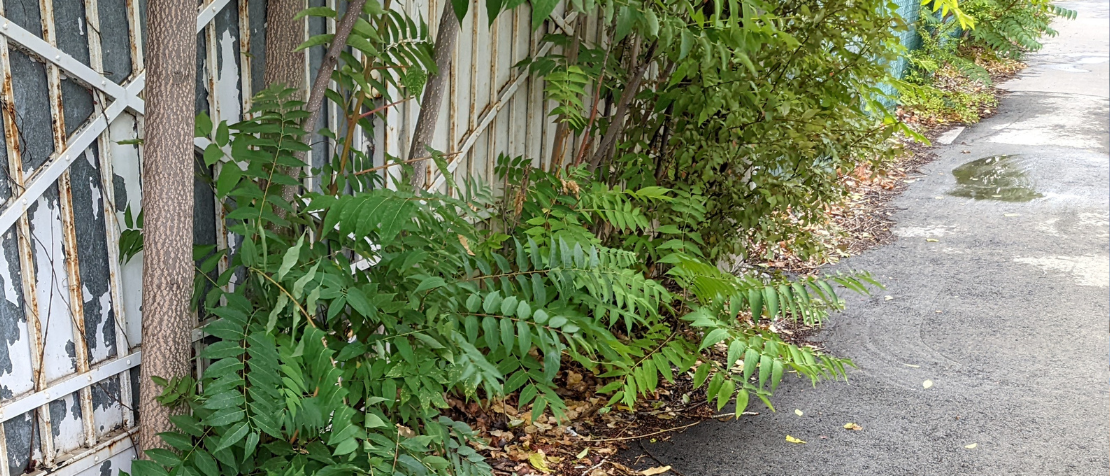International network plans action against invasive species in urban forests

Highly invasive tree of heaven (Ailanthus altissima)
©Erhard Halmschlager
FAO and the Regional Centre for Forestry and Rural Development (REFORD) in North Macedonia hosted the annual international meeting of the Forest Invasive Species Network for Europe and Central Asia (REUFIS) from 4 to 6 June 2024 in Skopje, North Macedonia.
The primary focus of this year’s meeting was the role of invasive species in urban forest planning. During this three-day event, participants explored the relationship between invasive species and urban forestry.
The workshop had more than 60 participants from 15 different countries across Europe and Central Asia, and beyond, adding a diverse array of perspectives to the discussions.
The opening session
In his opening remarks, Ferenc Lakatos, from the University of Sopron, Hungary and the Secretary of REUFIS, welcomed participants to the event and encouraged their active participation throughout the upcoming days.
Norbert Winkler-Ráthonyi, FAO Forestry Officer, emphasized both the global importance of urban forestry, and the need to discuss related challenges.
Shiroma Sathyapala, FAO Forestry Officer, highlighted the role of FAO’s Regional Forest invasive species networks as knowledge exchange platforms covering more than 100 countries, and the importance healthy trees for a healthy environment.
Sasho Petrovski, Expert on PEFC forest management certification from REFORD in North Macedonia, expressed his gratitude to all participants for their interest in this event.
A series of panel discussions and country presentations focused on key pests and diseases affecting urban forests in Europe. Topics included ash dieback, the emerald ash borer, the Asian longhorn beetle, the tree of heaven, among others, all of which pose significant challenges to maintaining healthy urban as well as non-urban forests in the region. Addressing them requires coordinated international efforts and effective management strategies.
Key messages from day one
Speakers highlighted the crucial role urban managers play in forest protection and discussed the importance of collaboration among all stakeholders, including foresters, policymakers, technicians, and the public for the effective management of invasive species.
Lucio Montecchio, from the University of Padova, Italy, stressed the importance of disseminating accurate information, stating: “Biosecurity must rely on sound scientific principles and information; otherwise, it risks becoming a mere buzzword.”
Field visit
Participants visited the Gazi Baba Nature Park, the forestry faculty of the Ss. Cyril and Methodius University in Skopje, where they received a warm welcome from the vice-director and hiked through the Vodno Protected Landscape. Throughout these activities, participants identified and learned more about key invasive species affecting forest resources in North Macedonia.
The annual gathering concluded with a meeting of the REUFIS focal point members, where participants identified priorities for the REUFIS 2024-2025 work plan, which include biological control initiatives, implementation of good practices in nurseries and the inclusion of youth in forest health initiatives.
FAO, Belarus and Ukraine act jointly against pine dieback
Milder weather and increased trade spell trouble for crops and trees
FAO shepherds region-wide cooperation on forest invasive species
